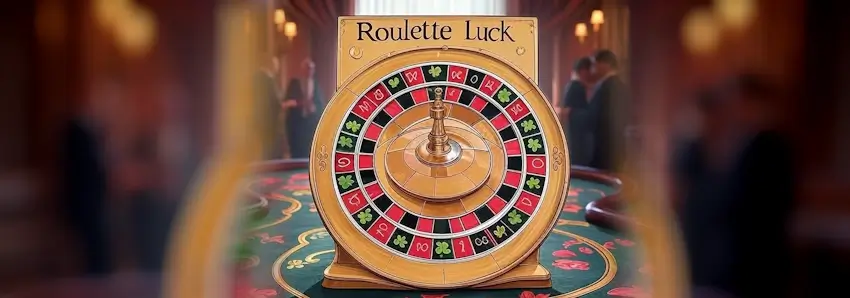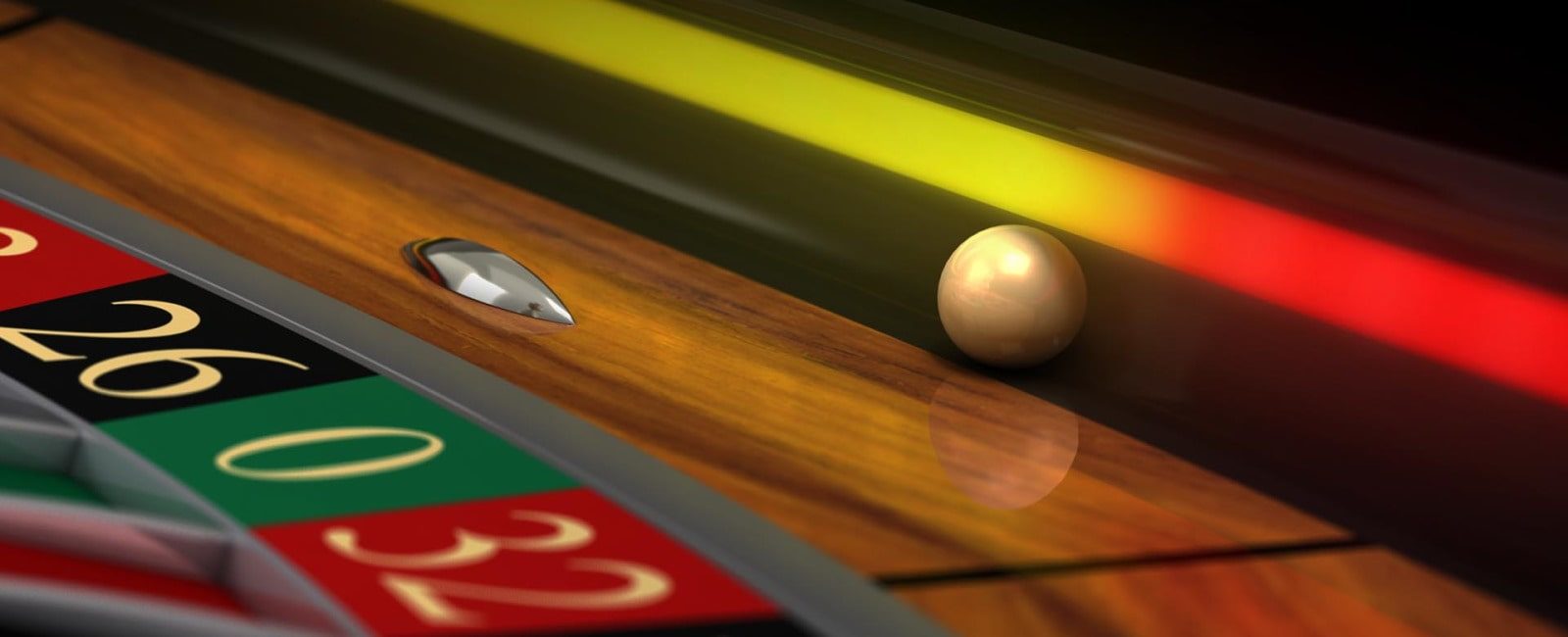Is Roulette 100% Luck?
Is Roulette all Luck?
Roulette, a cornerstone of casino gaming, has long been regarded as the epitome of luck. With its spinning wheel, bouncing ball, and myriad of betting options, it seems to be a pure game of chance.

But is roulette truly 100% luck? While the game’s design and rules make it a physical Random Number Generator (RNG), there are arguments suggesting that elements of skill, strategy, and even manipulation can influence the outcome.
Let’s explore the arguments for and against roulette luck being the “be all and end all”, diving into aspects like house edge optimization, biased wheels, and fraudulent practices.
The Case for Roulette Being a Game of Pure Luck
Roulette’s design inherently relies on randomness. A ball spun in the opposite direction of a spinning wheel bounces unpredictably before settling into one of 37 (European roulette) or 38 (American roulette) numbered pockets. The physics involved are chaotic and near-impossible to predict with precision, making the game effectively random.
Additionally, the rules ensure that players have no control over the outcome. Unlike card games like poker or blackjack, where decisions can influence the result, roulette offers no such player agency. The house edge—dictated by the inclusion of the zero(s)—ensures that, over time, the casino always profits. In this sense, roulette can be likened to a physical RNG, leaving outcomes entirely to chance.
Strategies That Can Improve Your Odds
Although roulette is a game of luck, players can adopt strategies to maximize their chances of winning or reduce their losses. These strategies don’t alter the game’s inherent randomness but work within its parameters to optimize outcomes.
Choosing the Right Game and Bets
One of the most effective ways to improve your odds is by choosing a European wheel over an American one. The European wheel has a single zero, giving it a house edge of 2.7%, compared to the American wheel’s 5.26% due to the additional double zero.
Further, opting for “even money” bets (red/black, odd/even, high/low) on European wheels offering the “La Partage” or “En Prison” rules can reduce the house edge even further, down to 1.35%. These rules return half of your stake on losing even-money bets if the ball lands on zero, providing a slight advantage for the player.
Short Sessions and Profit Maximization
Playing in short sessions and setting a stop-win limit can also be beneficial. The longer you play, the more likely the house edge will erode your bankroll. By quitting when you’re ahead, you can lock in profits and avoid the statistical inevitability of losing over extended play.
Biased Wheels: When Luck Meets Physics
In the past, some players exploited physical imperfections in roulette wheels to gain an edge. A biased wheel might have certain “hot zones” where the ball lands more frequently due to wear, manufacturing flaws, or improper maintenance. By meticulously recording results and identifying patterns, these players could place bets with a higher probability of success.
While casinos today employ rigorous maintenance and surveillance to eliminate biased wheels, historical cases highlight that roulette’s randomness isn’t always absolute. A famous example is the 1980s escapade of the “Gonzalo Garcia-Pelayo” family, who earned millions by identifying biased wheels in Spanish casinos. Such strategies hinge on physics and observation rather than sheer luck.
Fraud: Manipulating the Game
Another argument against roulette being purely luck involves fraudulent practices. While illegal, these methods demonstrate how outcomes can be influenced outside the realm of chance.
Roulette Clocking
Roulette clocking involves using technology to predict the wheel’s outcome by analysing the ball’s speed and deceleration. While modern casinos have countermeasures, earlier versions of this technique exploited the physical mechanics of the game.
Dealer Signature
Some players have sought to exploit “dealer signature,” a phenomenon where croupiers unknowingly develop a predictable way of spinning the ball and wheel. By identifying these patterns, players could predict likely outcomes. However, casinos now train dealers to vary their spins, minimizing this risk.
Collusion with Croupiers
In rare cases, players have colluded with croupiers to cheat. This involves prearranged bets or subtle manipulations by the dealer to influence the ball’s trajectory. Such schemes, while rare and illegal, further challenge the notion that roulette is entirely luck-based.
Past Posting
Past posting involves placing bets after the ball has landed but before the dealer announces the result. This form of fraud requires significant distraction or collusion with casino staff but highlights how timing, and guile can overcome the game’s inherent randomness.
Conclusion: Luck Dominates, but It Isn’t Absolute
Roulette is without doubt a game where luck reigns supreme. Its design and mechanics ensure that no player can consistently predict outcomes without external factors. However, strategies like selecting low house-edge bets, identifying biased wheels, and even exploiting fraudulent methods demonstrate that skill and observation can occasionally tip the scales.
For most players, roulette will remain a game of chance, offering the thrill of unpredictability and the allure of fortune. Yet, the nuanced strategies and exploits discussed here remind us that even in games of luck, human ingenuity can find ways to bend the odds—however fleetingly—in their favour.

